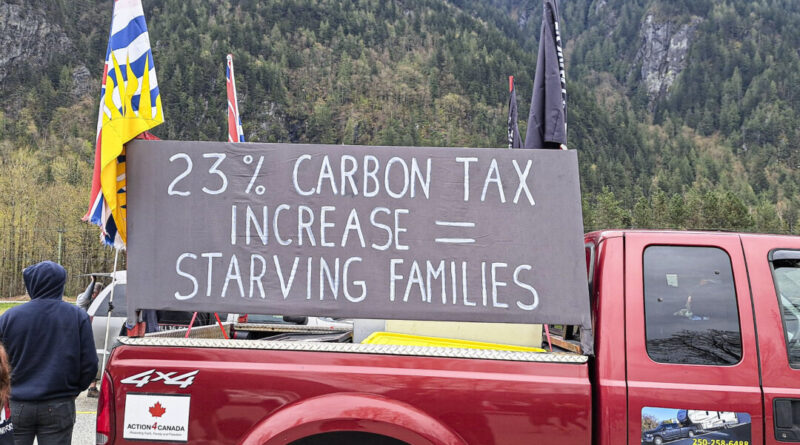Examining How April Price Increases Impact Taxpayers’ Wallets
April has brought a series of price hikes for Canadian taxpayers, ranging from salary increases for government officials to tax raises on carbon emissions and alcohol.
According to the Canadian Taxpayers Federation (CTF), a 23 percent increase in carbon tax, a 2 percent increase in alcohol tax, and a 4.2 percent pay raise for members of parliament have led to a nearly 30 percent increase in overall costs for Canadians.
CTF national director Franco Terrazzano stated in a press release, “The federal government should be offering relief instead of raising taxes that burden Canadians with higher costs.”
Conservative leader Pierre Poilievre has also been vocal about the affordability crisis, urging Ottawa to “axe the tax” to alleviate financial pressure on Canadians. He argues that carbon pricing increases impact the cost of all purchased goods, not just fuel.
Carbon Tax
Canadian citizens protested against the carbon tax increase on April 1, as the federal tax rose from $65 to $80 per tonne of greenhouse gas emissions. Protestors voiced concerns to The Epoch Times, citing the increased financial burden on those already struggling financially.
Prime Minister Justin Trudeau mentioned that the tax hike would be accompanied by an increase in the Canada Carbon Rebate to provide financial relief to eight out of 10 Canadian families.
However, the Parliamentary Budget Officer estimates that the carbon tax could cost the average Canadian household up to $911 more this year than they receive in rebates.
Fraser Institute senior fellow Kenneth Green criticized the carbon tax system, stating that it is “beyond redemption” and governments have failed to implement well-designed carbon tax policies.
Six Canadian premiers advocate for eliminating the tax, with multiple conservative premiers calling for its removal. Newfoundland and Labrador Liberal Premier Andrew Furey even requested a pause to the recent hike due to concerns about rising costs and residents’ affordability.
Conservative leader Poilievre urged for an emergency meeting of leaders to address the “carbon tax crisis” and explore alternative solutions for emission reduction without imposing taxes.
Canada’s carbon tax is a pricing mechanism to reduce CO2 emissions, starting at $20 per tonne in 2019 and set to increase by $15 annually until reaching $170 per tonne in 2030, aiming to achieve net-zero carbon emissions by 2050.
Alcohol Tax
The federal government implemented its annual alcohol excise tax increase on April 1 but capped the planned 4.7 percent hike at two percent through 2026 to support small brewers.
Finance Minister Chrystia Freeland mentioned that the decision was made to address challenges faced by brewers due to rising ingredient costs.
Despite calls to halt the tax increase, the government proceeded with the two percent hike, which may cost taxpayers approximately $40 million this year according to the Canadian Taxpayers Federation (CTF).
Conservative leader Poilievre criticized the tax increase, highlighting the continuous rise in taxes imposed by the government.
The alcohol tax, known as an “escalator tax,” is automatically increased at intervals with no parliamentary debate or vote before the scheduled increments.
MP Pay Raise
Members of parliament received a 4.2 percent pay raise on April 1, leading to salary increases ranging from $8,500 to $17,000 annually.
The pay raise will elevate backbench MP annual salaries to $203,100, cabinet ministers to $299,900, and Prime Minister Justin Trudeau to $406,200.
CTF’s Terrazzano criticized MPs for taking more money from Canadians while raising their own pay, emphasizing the need for tax relief rather than tax hikes.
MPs traditionally receive pay raises on April 1 each year based on the average annual increase in union contracts with large corporations.
While the average annual salary for full-time workers in Canada is $67,000, the Office of the Prime Minister did not respond to requests for comment on the recent pay raise.



